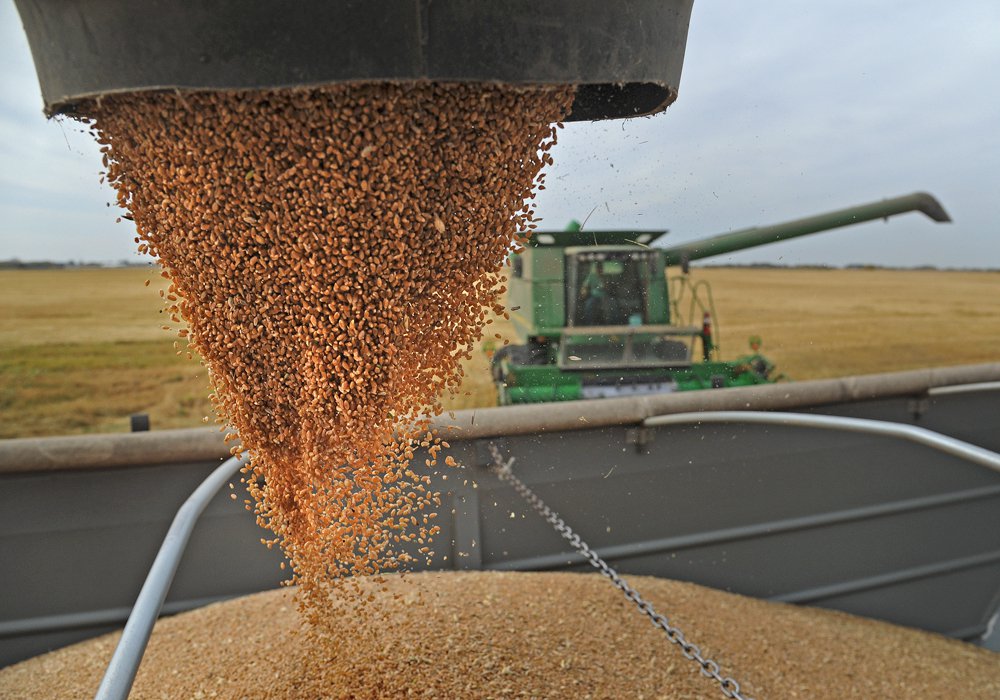
The Alberta farmer and vice-president of the Western Canadian Wheat Growers Association says grain commissions and grain farmer organizations have said nothing about a $1.75 billion compensation package for Canadian dairy farmers.
Vandervalk cannot comprehend the silence because grain growers in Canada desperately need help, not dairy farmers, he said.
“The commissions aren’t doing anything. They’re being dead quiet on it,” said Vandervalk, who farms near Fort Macleod, Alta.
“I have no explanation why they (are silent).”
Last week, the federal government announced $1.75 billion in financial aid for dairy producers. The tax dollars will compensate dairy farmers for market access given to other nations in recent trade deals, including the U.S.-Mexico-Canada-Agreement (USMCA).
The WCWGA issued a news release protesting taxpayer support for dairy farmers, highlighting the lack of support for Canadian grain farmers, who are struggling with low prices, non-tariff trade barriers and no access to key markets like China.
“At what point do you say this is absolutely ridiculous?” Vandervalk asked. “Why would an industry (dairy) that has guaranteed income, a guaranteed market… (need financial support)?”
The WCWGA has calculated that international market challenges for Canadian grain growers, including China (canola), India (lentils), Italy (durum) and other countries, adds up to nearly $4 billion in market losses over the last three years.
Despite that hardship, groups that represent grain farmers aren’t criticizing a massive compensation package for dairy producers, said Vandervalk, who was on the Grain Growers of Canada board for about a decade.
He has contacted his former colleagues at the GGC, and others, to understand why nothing is being said.
“The common (response) is you need to be in the room to affect change,” he said. “”This is probably one of the biggest crisis that the grain industry has seen, in a long time…. I have no idea why seasoned people in the industry are using that line (to explain their silence) and not come out with news releases.”
The Western Producer contacted the Grain Growers of Canada for comment.
A spokesperson said they were working on a response, but it wasn’t available by press time.
Many farm organizations and commodity groups remain silent about the $1.75 billion for dairy farmers, but some Canadian economists have spoken out.
Canada’s canola industry hasn’t exported canola seed to China, for months, because the Chinese government has banned imports over “pests” in canola shipments from Canada. Many believe that justification is cover. China is punishing Canada for the detention of Meng Wanzhou, a Huawei executive, who is facing extradition to the United States.
In response to the diplomatic dispute and the potential loss of $2.7 billion in canola seed sales to China, the federal government increased the limits of the Advance Payments Program. Now, producers can borrow $1 million, with up to $500,000 being interest free for canola growers. For other commodities the interest free limit is $100,000.
Al Mussell, research lead with Agri-Food Economic Systems in Ontario, said federal government support for oilseed and grain growers is different from $1.75 billion in direct aid.
“Grain farmers could be in for a long haul of low prices and a sobering trade outlook,” Mussell told the Financial Post. “They look at this and say dairy farmers got $1.75 billion and what did we get? Debt.”
Vandervalk made a similar argument.
“Why didn’t they offer supply management producers interest-free loans?” he asked.
“(Meanwhile) grain farmers can’t even sell their product…. What would be the numbers now? Twenty to 30 percent… of our markets have been shut down…. Yet, the solution to that is we’ll let you borrow more money.”
























